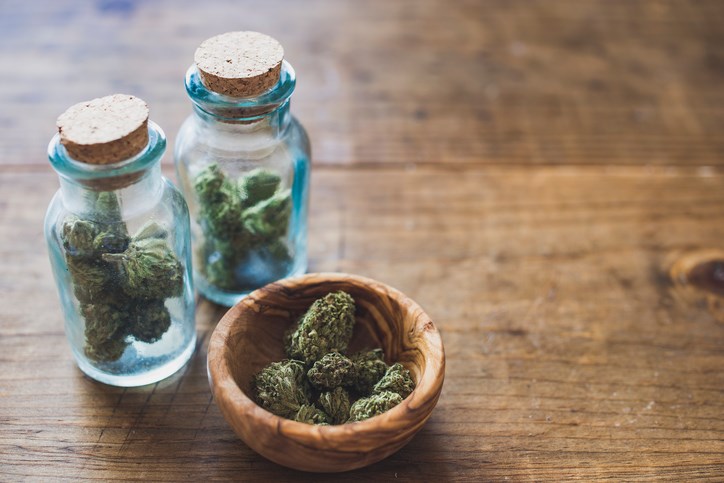As Canada edges closer to legalizing marijuana, landlords in B.C. are considering rental agreements with restrictions on growing and smoking in the home to weed out potential fire hazards, odours and liability issues.
The federal task force on marijuana legalization recommended that Canadians should be able to grow up to four plants at home, and be allowed to possess 30 grams of marijuana for personal use. The federal government could announce legislation to legalize marijuana as early as April 20 with an aim for recreational pot to be legal by Canada Day 2018.
David Hutniak, CEO of Landlord BC, said it’s one thing for medical marijuana patients to grow their own cannabis, “but if it’s legalized for everybody — and what the task force that reported to the federal government appears to be suggesting is that everybody can have their own little grow-op — that’s a different game. And that’s the one we’re more concerned about.”
The association’s tenancy agreements will eventually have specific language regarding marijuana use, Hutniak said, which could have restrictions similar to those for smoking tobacco or having pets.
Someone with a licence to grow medical cannabis could still face eviction if their activity affects the landlord’s ability to insure the property, if they undertake major modifications to the rental unit or their conduct infringes on other tenants, he said.
Any grow-operation larger than a few plants on a windowsill could affect insurance coverage, according to the Insurance Bureau of Canada. “Insurers are beginning to look at how changes in laws might affect the coverage they offer. … The operation of a grow-op is a high-risk activity,” said the bureau’s spokesman Andrew McGrath. “In the past, property insurance has not typically been designed to cover the potential damage a grow-op can cause to a house or condo.”
Growing marijuana can involve moisture and high humidity that causes structural damage and modifications to electrical wiring can pose a fire hazard, McGrath said.
The Canadian Federation of Apartment Associations has written to Health Canada, the Department of Public Safety and the Attorney General of Canada to express its opposition to marijuana growing in rental units.
Sandy Wagner, president of the Vancouver Island Strata Owners Association, said once marijuana is legalized, growing a small number of cannabis plants shouldn’t violate any strata bylaws.
However, she said some strata bylaws that have a ban on smoking could extend to cannabis.
The Civil Resolution Tribunal, which resolves strata disputes, recently ruled that if a strata has a no-smoking bylaw, anyone who smokes medical marijuana must do so off the strata property or consume it in an alternative form.
Lawyer Kirk Tousaw, who fought the issue of possessing cannabis oils all the way to the Supreme Court, said restrictions on smoking or growing small amounts of cannabis in the home could interfere with people’s ability to consume medicine.
“If you’re a medical consumer, I think there’s a human rights issue if landlords are trying to prevent you from consuming in a rental unit,” Tousaw said.
The “hysteria” about people growing in their homes has been overblown, he said.
New technology has led to discreet growing cabinets that merely have to be plugged in like a refrigerator. “At the end of the day, we shouldn’t be interfering with people’s access to medicine,” he said.
Opportunity
For B.C.’s 10 licensed marijuana producers, and the dozens more waiting for accreditation, legalization is a major opportunity.
“We know that we want to be involved in both markets, so that’s something we’re gearing up for now,” said Chris Stone, director of quality assurance at Broken Coast Cannabis Ltd., a mid-sized medical marijuana producer with a facility in Duncan and a staff of 40 employees. “For us, legalization means that there will definitely be an increase in the number of customers.”
The head of a licensed producer of medical marijuana based in Kelowna said his company will expand its workforce to more than 100 from its current 14 if it gets approval to operate in a future recreational cannabis system.
“We’re definitely looking to supply the recreational market,” said John Miller, CEO of THC BioMed, “and we know that we’re going to have to scale up to do it.”
Miller also wants dispensaries, which currently source their marijuana either illegally or from patients, to come into one supply chain where licensed producers grow and distribute cannabis.
What will happen to B.C.’s more than 150 dispensaries remains a mystery.
The dispensaries have been joined by powerful new entries like the Alliance of Beverage Licensees and the BC Government Employees and Service Union (BCGEU), who want a system modelled on the liquor distribution supply chain.
“We’ve been selling controlled substances responsibly for decades,” said BCGEU president Stephanie Smith.
- With files form Business in Vancouver



